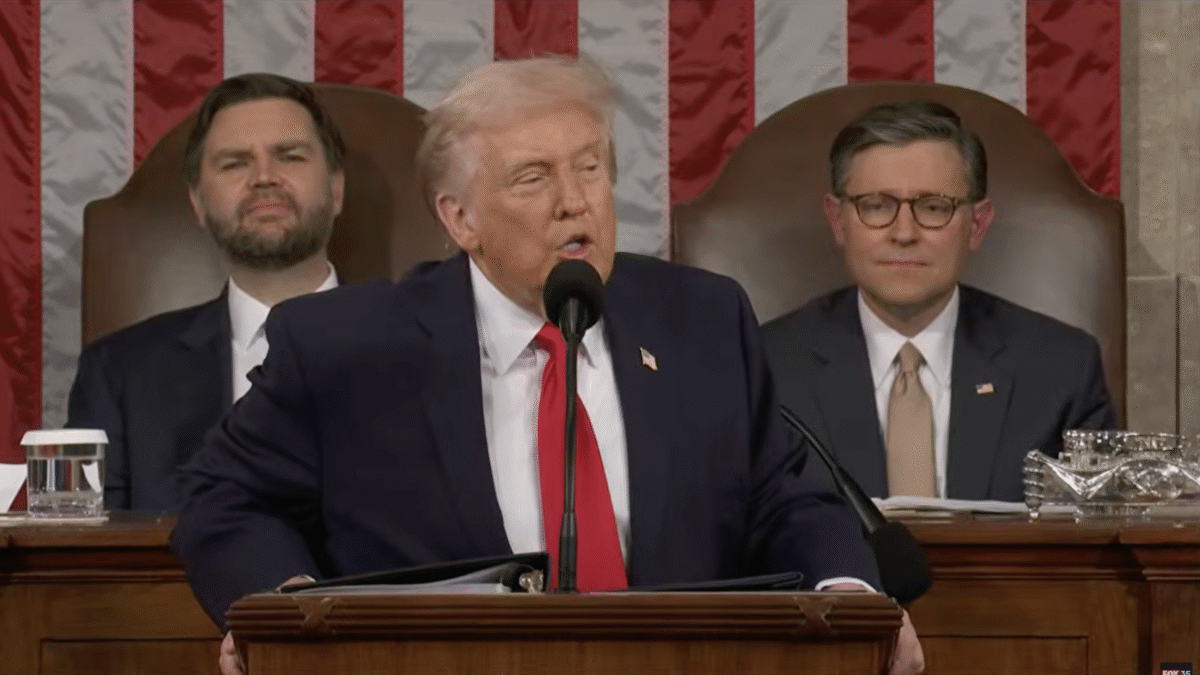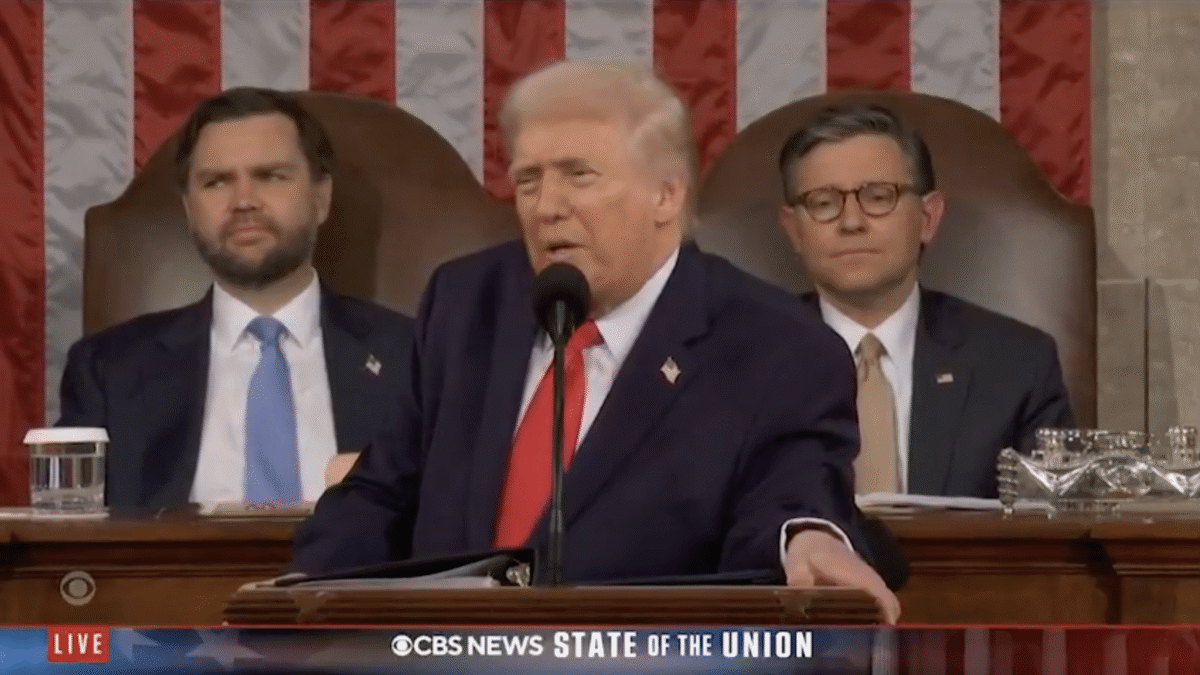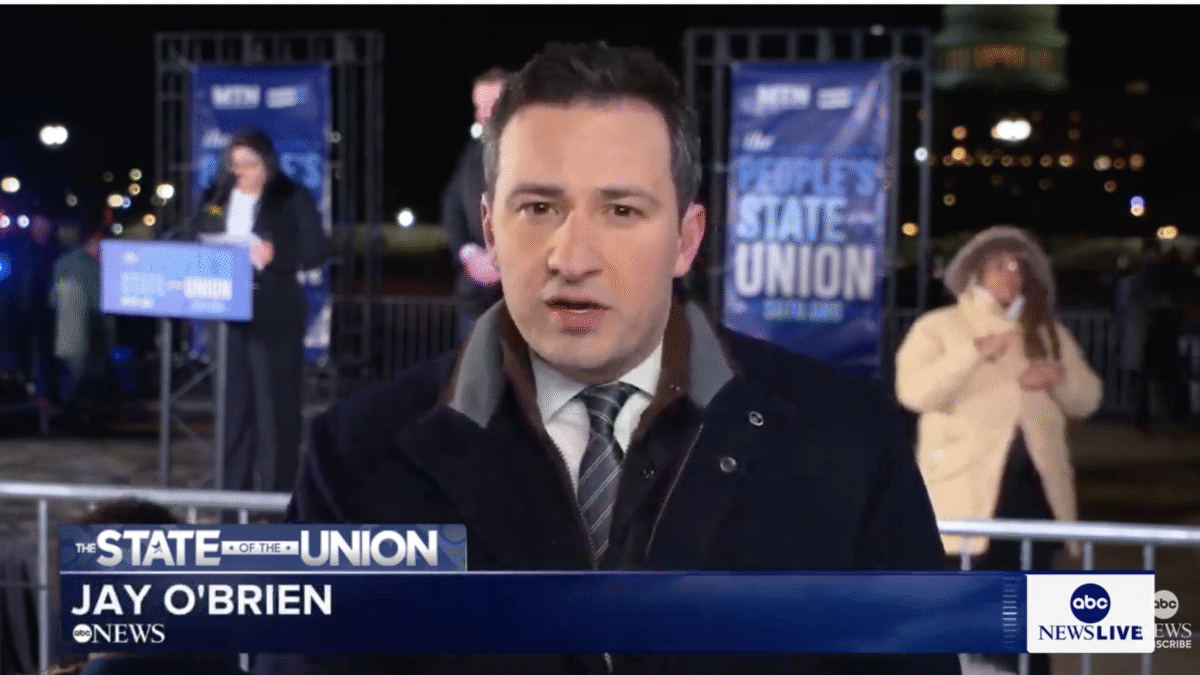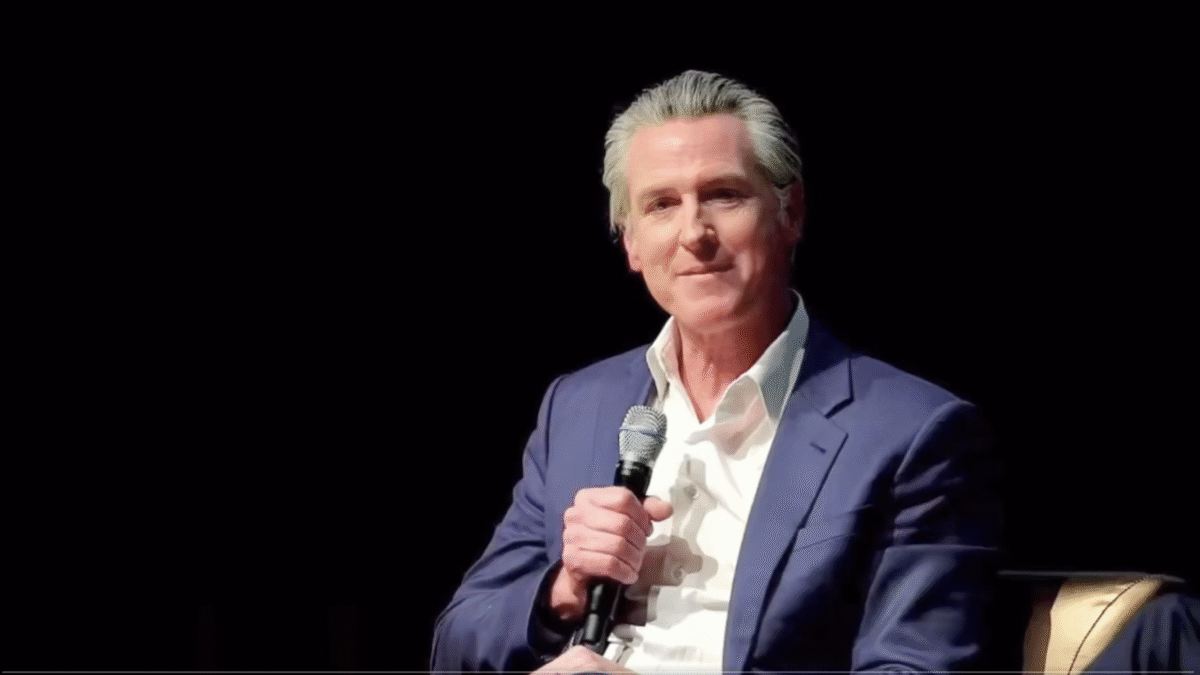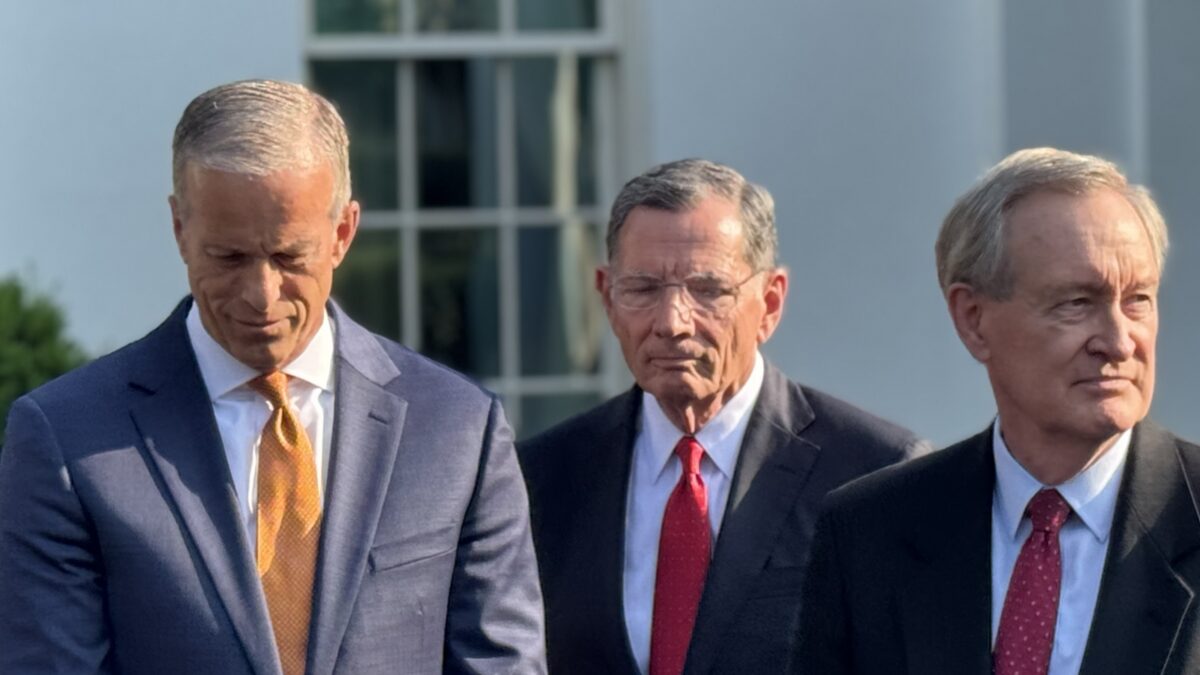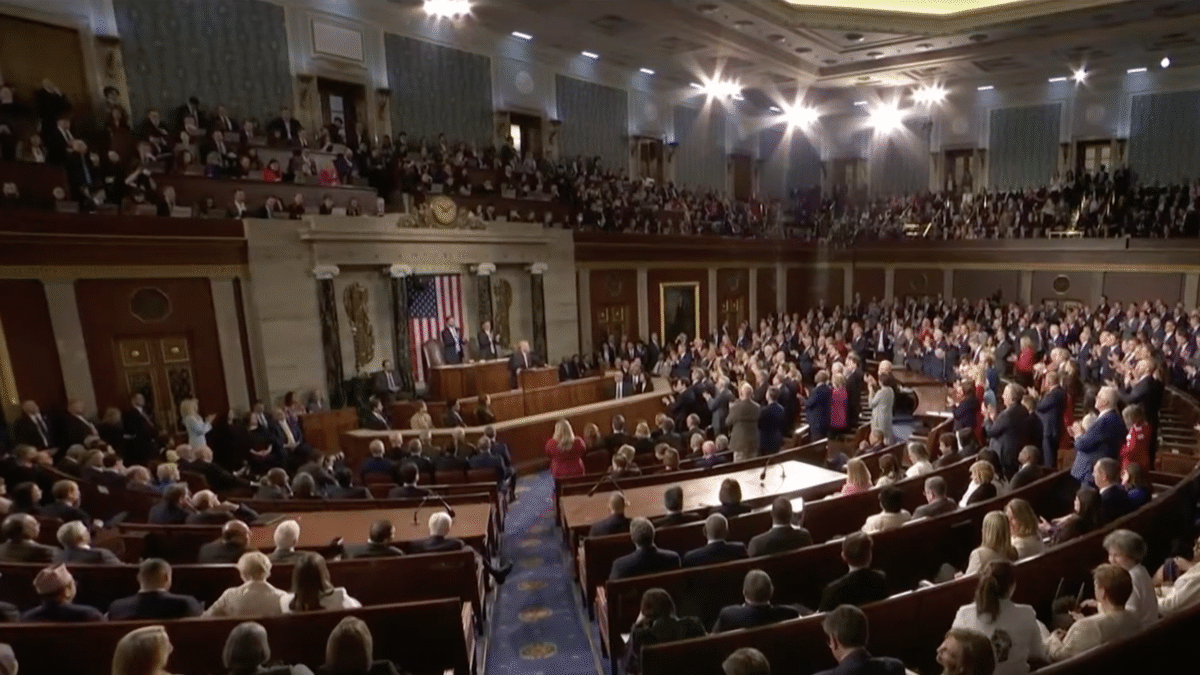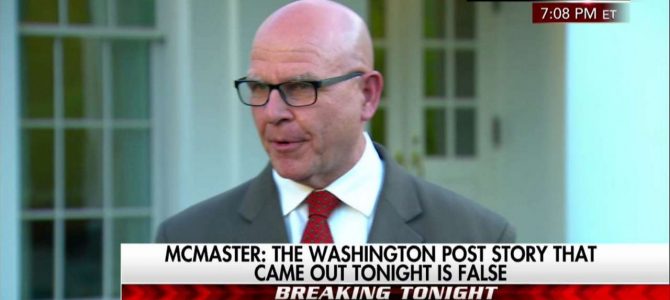
On May 10, the Washington Post‘s Philip Rucker, Ashley Parker, Sari Horwitz, and Robert Costa claimed:
[Deputy Attorney General Rod J.] Rosenstein threatened to resign after the narrative emerging from the White House on Tuesday evening cast him as a prime mover of the decision to fire Comey and that the president acted only on his recommendation, said the person close to the White House, who spoke on the condition of anonymity because of the sensitivity of the matter.
But the “person close to the White House” who made the claim without using his or her name was contradicted by none other than Deputy Attorney General Rod J. Rosenstein himself. The next day he said, “I’m not quitting” when asked by reporters. “No,” he said to the follow-up question of whether he had threatened to quit.
On May 10, Ashley Parker wrote:
Last week, then-FBI Director James B. Comey requested more resources from the Justice Department for his bureau’s investigation into collusion between the Trump campaign and the Russian government, according to two officials with knowledge of the discussion.
The story was based on anonymous sources, naturally, and noted “The news was first reported by the New York Times.” If true, it would support a narrative that Trump had fired Comey not due to his general incompetence but because he was trying to thwart a legitimate and fruitful investigation. Anonymous sources again had something very different to say from people whose comments were tied to their names, who all denied the report. The Justice Department spokeswoman immediately responded that the claim was false, and her quote was included in the story:
Justice Department spokeswoman Sarah Isgur Flores said reports that Comey had requested more funding or other resources for the Russia investigation are ‘totally false.’ Such a request, she said, ‘did not happen.’
The next day under oath, acting FBI Director Andrew McCabe repeatedly denied that the probe into Russia was undersourced or requiring any additional funds. In response to one question about whether the FBI had sufficient resources to investigate, he said:
‘If you are referring to the Russia investigation, I do. I believe we have the adequate resources to do it and I know that we have resourced that investigation adequately,’ acting FBI director Andrew McCabe told lawmakers, adding that he was unaware of any request by the agency for additional resources.
Previous Washington Post stories sourced to anonymous “officials” have fallen apart, including Josh Rogin’s January 26 report claiming that “the State Department’s entire senior management team just resigned” as “part of an ongoing mass exodus of senior Foreign Service officers who don’t want to stick around for the Trump era.”
The story went viral before the truth caught up. As per procedure, the Obama administration had, in coordination with the incoming Trump administration, asked for the resignations of all political appointees. While it would have been traditional to let them stay for a few months, the Trump team let them know that their services wouldn’t be necessary. The entire story was wrong.
Rogin also had the false story that Steve Bannon had personally confronted Department of Homeland Security’s Gen. John F. Kelly to pressure him not to weaken an immigration ban. Take it away, Kelly:
‘It was a fantasy story,’ Kelly said. Of the reporter, he said: ‘Assuming he’s not making it up… whoever his sources are, are playing him for a fool.’
Each of these stories were explosive breaking news that served an anti-Trump narrative but later turned out to be false.
This week, the Washington Post reported that President Trump threatened national security during his meeting with Russians last week. The story was based on anonymous leaks regarding a real meeting that took place. The report was immediately slapped down as false by multiple high-level Trump officials who were present in the meeting:
Natl Security Adviser McMaster made a statement denying a report that @POTUS revealed classified info to Russia. https://t.co/LB3P3BgT10 pic.twitter.com/gRNcLlZNvC
— Fox News (@FoxNews) May 15, 2017
He said,
The story that came out tonight as reported is false. The president and the foreign minister reviewed a range of common threats to our two countries, including threats to civil aviation. At no time, at no time, were intelligence sources or methods discussed. And the president did not disclose any military operations that were not already publicly known. Two other senior officials who were present, including the Secretary of the State, remember the meeting the same way and have said so. Their on the record accounts should outweigh anonymous sources. I was in the room. It didn’t happen.
Secretary of State Rex Tillerson said, “During President Trump’s meeting with Foreign Minister Lavrov a broad range of subjects were discussed among which were common efforts and threats regarding counter-terrorism. During that exchange the nature of specific threats were discussed, but they did not discuss sources, methods, or military operations.”
Dina Powell, deputy national security advisor for strategy, was also in the meeting. She said, “This story is false. The president only discussed the common threats that both countries faced.”
Now, clearly a meeting took place, and clearly things were discussed. But it’s hard to know if anything else in the Washington Post story was true. Particularly with three individuals all pushing back against it.
For context, it’s worth noting that breaking news is frequently wrong. In the aftermath of a terrorist attack or an active shooter, responsible journalists pass around a guide for how to monitor breaking news. Here it is:

Perhaps we need a similar guide for how to handle breaking news that comes from the Washington Post. It turns out we can keep many of the tips:
- In the immediate aftermath, news outlets will get it wrong.
- Don’t trust anonymous sources. If democracy dies in darkness, anonymity is not exactly transparent or accountable. Unless someone is willing to to put his or her name with a leak, be on guard. Pay attention to how well the reporters characterize the motivations of the anonymous leaker. All leakers have motivation. Does the paper seem to have a grasp on how the motivation affects the veracity of the leak?
- If someone is leaking national security information in order to support the claim of a national security violation, be on guard.
- If someone is claiming a serious national security crisis but not willing to go public with the claim and resign in protest of same, be on guard.
- Compare sources willing to put their name and reputation on the line.
- Big anti-Trump news brings out the fakers.
- Pay attention to the language that the media uses. Is a story about something unimportant being written in such a way as to make it seem more important?
- Beware confirmation bias. Everyone has the tendency to interpret new evidence as confirmation of one’s existing beliefs or theories. Be on guard that you don’t accept critical or exonerating evidence to match your political preferences.
- Pay attention to how quickly and fully editors and reporters correct stories based on false information from anonymous sources. If they don’t correct at all, it’s an indication of a lack of respect.


